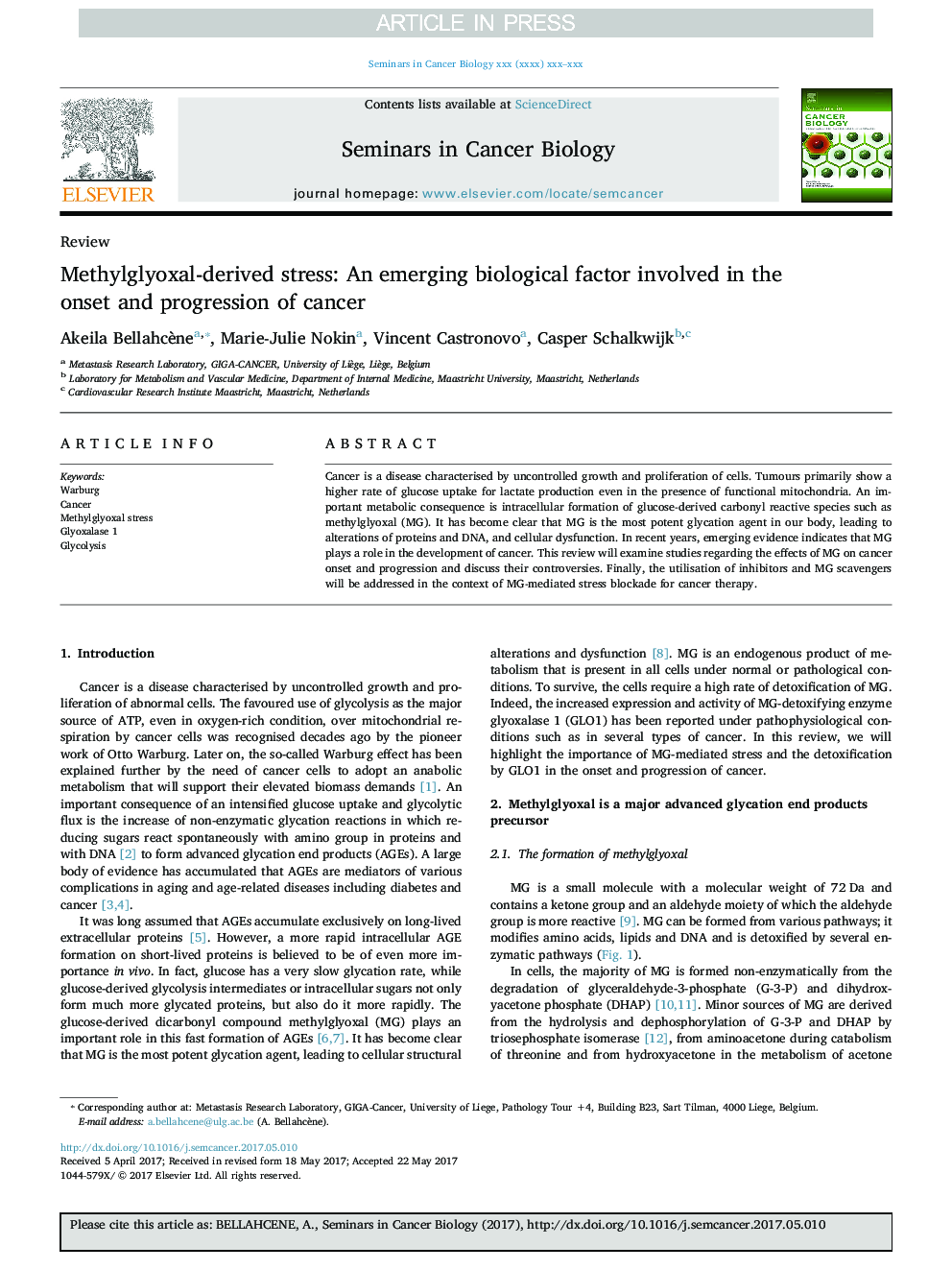| Article ID | Journal | Published Year | Pages | File Type |
|---|---|---|---|---|
| 8361772 | Seminars in Cancer Biology | 2018 | 11 Pages |
Abstract
Cancer is a disease characterised by uncontrolled growth and proliferation of cells. Tumours primarily show a higher rate of glucose uptake for lactate production even in the presence of functional mitochondria. An important metabolic consequence is intracellular formation of glucose-derived carbonyl reactive species such as methylglyoxal (MG). It has become clear that MG is the most potent glycation agent in our body, leading to alterations of proteins and DNA, and cellular dysfunction. In recent years, emerging evidence indicates that MG plays a role in the development of cancer. This review will examine studies regarding the effects of MG on cancer onset and progression and discuss their controversies. Finally, the utilisation of inhibitors and MG scavengers will be addressed in the context of MG-mediated stress blockade for cancer therapy.
Keywords
Related Topics
Life Sciences
Biochemistry, Genetics and Molecular Biology
Biochemistry
Authors
Akeila Bellahcène, Marie-Julie Nokin, Vincent Castronovo, Casper Schalkwijk,
